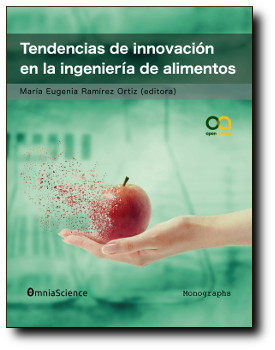Pages: 476
Binding: Perfect-bound Paperback
Interior Ink: Black & white
Dimensions (cm): 21.0 wide × 29.7 tall
Buy now a copy and save 15%, until January 15th.
|
|
||
|
|
||
Pages: 476
Binding: Perfect-bound Paperback
Interior Ink: Black & white
Dimensions (cm): 21.0 wide × 29.7 tall
Buy now a copy and save 15%, until January 15th.
Pages: 80
Binding: Perfect-bound Paperback
Interior Ink: Black & white
Dimensions (cm): 21.0 wide × 29.7 tall
Buy now a copy and save 15%, until 17th January
 Tendencias de innovación en la ingeniería de alimentos
Tendencias de innovación en la ingeniería de alimentos
Editor: María Eugenia Ramírez Ortiz
Language: Spanish
Binding: Perfect-bound Paperback
Pages: 288 pages
Dimensions (cm): 18.9 wide x 24.6 tall
Summary
Innovation can be identified as improving the ways in which industries produce and sell things, for example, product changes, process changes, new forms of organization of the company or distribution of its products. Particularly in companies involved in food processing innovation can occur at different levels: The novel ingredients (to replace or reduce fat, sugar, salt formulations, addition of antioxidants) and how they are obtained and incorporated into a food (in nanoemulsions, microencapsulated, etc.) looking for ease of use, sustainability of the process, the use of bioactive characteristics, the machinery used and the conditions to which a food is subjected. New forms of marketing (social networks, specialty shops, etc.) and the emergence of new groups of market trends power (vegetarians, vegans, athletes, organic consumers, etc.) are also sources of innovation.
Actually innovation in food engineering appears in all fields and allows and generates the need for interaction of various specialists to get the desired results: foods that last longer, with better quality, with specific, consistent qualities to new markets, consumers who want a traditional product but with the addition of the advantages of technology to keep you within your lifestyle.
This book is a sample of the many ways the food science has to innovate in food engineering, always with the ultimate goal to satisfy consumers, contributing from various aspects in which a food can be studied, even in the training of professionals in this area.
Purchase a printed book: Lulu - Createspace - Amazon.es - Amazon.com - Amazon.co.uk - Amazon.de - Amazon.fr - Amazon.it